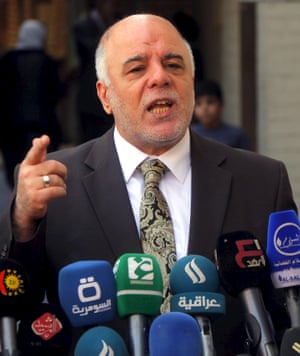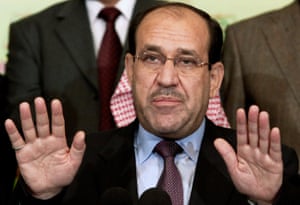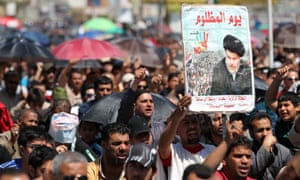Dr Abdel Sattar QassemProfessor of Political studies, Al Najah National University
Link
Europe’s recent announcement that Jerusalem is the capital of two states to be achieved through negotiations between Palestinian and Israel was a rejection of Sweden’s proposal that there be explicit recognition of “East Jerusalem” as the capital of an independent Palestine. Since 1967 most European countries have expressed their support for establishing a Palestinian state with East Jerusalem as its capital or at least they considered East Jerusalem as occupied territory in line with international law, and not the “unified capital” claimed by Israel.
This European decision is completely in proportion to the influence the EU has internationally: small. Despite its physical size, and its economic, military, cultural and social potential, the commissioners in Brussels appear not to want to exploit it to the full, and have real influence around the world. In other words, the EU is lacking the courage to take brave decisions on global issues and has all the characteristics of a cowardly giant. It is opting for cowardly caution, being shy about tackling issues, taking confused steps, and ending up with nothing. There’s no harm about being cautious per se, but why not be courageously so, making careful but steady progress? The need for such courage has never been so clear as it is on the issue of calls for a Palestinian state and what that state would entail in terms of land and, importantly its capital city.
The EU has decided that Jerusalem should be the capital of two states without giving a clear definition of what that means in practice. Does the EU mean East Jerusalem as the Palestinian capital, occupied and annexed in defiance of international law by Israel in 1967? Would that be with or without the illegal settlements that Israel has been building for the past 40+ years? Or do the settlements – colonies, actually – fall under a different heading in negotiations within which options such as dismantling them or swapping their land for other territory outside international law figure prominently? And why does Jerusalem have to be divided anyway? (The original UN partition plan in 1947 envisaged international status for the city)
Whatever is eventually decided, the real cowardly aspect of the EU’s position is that it has introduced the concept of negotiations about two states as the key component of any decision about Jerusalem. What if the negotiations – which with the USA as the “honest broker”, will always tilt towards the Israeli position – fail to reach an agreement about two states? Does that mean that the Palestinians will lose their right to Jerusalem and Israel’s illegal annexation will be rewarded with permanent occupation? The finger of blame for this possibility should not be pointed at the Israelis alone; Palestinian negotiators post-Oslo have preferred to seek solutions outside the texts of international resolutions such as, for example, the issue of Palestinian refugees, even though UN Resolution 194 calls on Israel to facilitate immediately the return of all Palestinian refugees. The same is true with the right of self-determination which was not even mentioned in the Oslo accords. In such clear-cut cases, what is there to negotiate? How much, or how little, is Israel prepared to agree to abide by the will of the international community perhaps? For by taking UN Resolutions out of the “final status” negotiations you immediately consign the UN itself to history. Maybe that’s Israel’s intention; Israelis refer to the staff of the UN Relief and Works Agency (UNRWA) as “Unwanted Nobodies”.
It is clear that the EU looked for an amendment to the Swedish initiative in order not to anger Israel too much. The reaction of the Israeli government confirmed that, despite angry reactions from some right-wing Israeli politicians. The reality is that the EU was not expected to take a strong decision which they would have to defend; their history in addressing the Palestinian and other global issues demonstrates that ably.
Israel was created by Europe, to solve a European problem; its Jewish communities who were the focus of rampant anti-Semitism across the continent. In fact, it is true to say that the whole map of the modern Middle East was created by European powers, notably the British and the French, with the Sykes-Picot Agreement of 1916. Intended to be a “bastion of European civilisation in a sea of barbarism”, Israel was planned and executed while Britain had the League of Nations Mandate to prepare the Palestinian people for statehood, all the while allowing Jews to migrate to Palestine and obtain land there. Even during the final few years of the Ottoman Empire, pressure was brought to bear on Constantinople by several European countries to increase the number of Jewish immigrants to Palestine, which was then a province of the Ottomans.
Britain’s record in Mandate Palestine is poor, to say the least; Jews were allowed to be armed and trained to fight, while the Palestinians were disarmed. Thus post-World War Two, the Zionists had a ready-made army to fight, ironically, against the British and then the Palestinians. Europeans supported Israel against the Arabs, they backed it in the 1948 war and supplied it with large quantities of weapons, and asked it to participate in the Suez War in 1956. European technology, particularly from France, supplied nuclear know-how to Israel, masterminded the theft of heavy water and gunboats, and it supplied Israel with sophisticated weapons used against the Arabs in 1967. Europe’s record as a pro-Israel entity is long, and only the very naive would think that the EU could go against type and take a meaningful stand against Israel.
While the EU claims to support the establishment of a Palestinian state, to-date no one has defined such a state to us. Supporting a connected and viable Palestinian state without full independence and self-determination suggests that Europeans are not in favour of a truncated state separated by barriers and Israeli checkpoints, but the concept of “viable” is undetermined with no basis in international law. Viability does not, however, equate with sovereignty in the Israeli version of the future.
This stress on viability is one way to avoid discussion about a truly independent state with sovereignty, control of its borders, a fee economic system, diplomatic representation and, of course, an army to defend itself. The EU and USA avoid talking about these issues and tackle the idea of a Palestinian state as something beyond international law and conventions. A“viable” state acceptable to Brussels and Washington could, for example, mean that other countries provide for this state financially as long as it is committed to certain conditions, making “independence” conditional on the collective will of others. Or it could mean that the borders with Egypt and Jordan will be open for trade and human traffic subject to European monitoring but based on Israeli conditions. Or it could mean that education system is inspected to ensure adherence to principles and directions dictated by third parties. The idea of viability may be confined to cultural and religious matters as if the Palestinians are merely well-trained beings who have no aspirations beyond eating, drinking and faith. And so on. None of which, of course, makes for a truly independent state.
What the EU and USA really want is a Palestinian state that will act as a security agent for Israel, indebted to others to keep it in check, and with enough financial support to provide a degree of comfort a degree above the poverty line, but not enough to allow its people a modicum of self-respect.
European criticism of Israel has never gone beyond mild rebukes towards, say, economic sanctions on products from Israeli colony-settlements in the West Bank. In fact, even though economic boycotts helped to bring down apartheid South Africa, efforts to instigate boycotts of Israeli goods, academics and cultural activities are always discredited as being “unworkable”. So if the EU is to be taken seriously in its efforts to do something positive for the Palestinians, it should take practical steps, and an economic boycott is a relatively easy place to begin.
One of the ironic aspects of the EU’s position in this whole situation is that the Europeans frequently pick up the bills to pay for the destruction caused by Israeli aggression. In a curious version of the Holocaust effect (Europe sins, Palestinians pay the price), Israel sins and Europe pays the price. The unaccountable party in both cases is Israel. The EU is the second largest donor to the Palestinians, after the Arab states, and provide sufficient funds as per the agreements made with Israel to support the Palestinian Authority and enable it to pay its employees. This is encouraged by both America and Israel.
After Hamas won the democratic elections in Palestine, the EU followed Israel and the USA and agreed to boycott the Hamas-led Palestinian Authority. For the past three years the EU has also supported the illegal siege and blockade of Gaza, again at the instigation of Israel. Like the Americans, like the Israelis, who claim to promote democracy across the region, the Europeans’ attitude totally contradicts democratic principles. The message to the Palestinians is clear: you must only vote for those parties we agree with. The democratic will of the Palestinian people counts for nothing in this hypocritical game.
It is notable that EU opposition to Israeli policies intensifies in direct proportion to the amount of American criticism. When President Obama talked about West Bank settlements, so did the Europeans; when it faded from his agenda, it disappeared from the European’s as well. There are strong indicators which demonstrate that the EU has not yet reached maturity in its foreign policy, for it is still heavily influenced by the USA and Israel. The attitude towards the situation in Gaza is a glaring example. Despite the evidence of a humanitarian catastrophe (and now war crimes), Europe continues to toe the Zionist line that Hamas is a terrorist organisation and illegal collective punishment of the whole population is acceptable in order to “defeat terrorism”. And European politicians apologise for state efforts to bring those accused of war crimes to court. The Oxford dictionary defines a terrorist as “a person who uses violence and intimidation in the pursuit of political aims”, which describes perfectly the Israeli aggression against and blockade of Gaza, aided and abetted by the EU; I rest my case.








